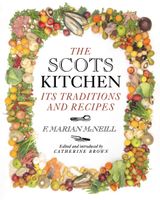Advertisement
Hospitality
Published 2015

Among the ancient Scots it was deemed infamous in a man to have the door of his house shut, lest, as the bards express it, ‘the stranger should come and behold his contracted soul’. The free and open hospitality which characterizes a primitive condition of society survived much later in Scotland, and particularly in the Highlands,1 than in the more highly civilized countries of Europe. Fynes Moryson, a graduate of Cambridge, who visited Scotland in 1598, tells us that he noticed no regular inns with signs hanging out, but that private householders would entertain passengers on entreaty or where acquaintance was claimed. The last statement is interestingly corroborated in the account of his journey to Scotland which that eccentric genius, John Taylor, the Thames waterman (commonly known as the Water-Poet), printed in 1618. In the course of what he terms his ‘Pennyless Pilgrimage, or Moneyless Perambulation’, he claims to have depended entirely on private hospitality. Everywhere, indeed, in his progress through Scotland, he appears to have been feasted sumptuously, and liberally supplied with money by hospitable gentlemen who probably found his witty conversation ample recompense. ‘So much of a virtue comparatively rare in England, and so much plenty in a country which his own people were accustomed to think of as the birthplace of famine, seems,’ Chambers comments, ‘to have greatly astonished him.’

